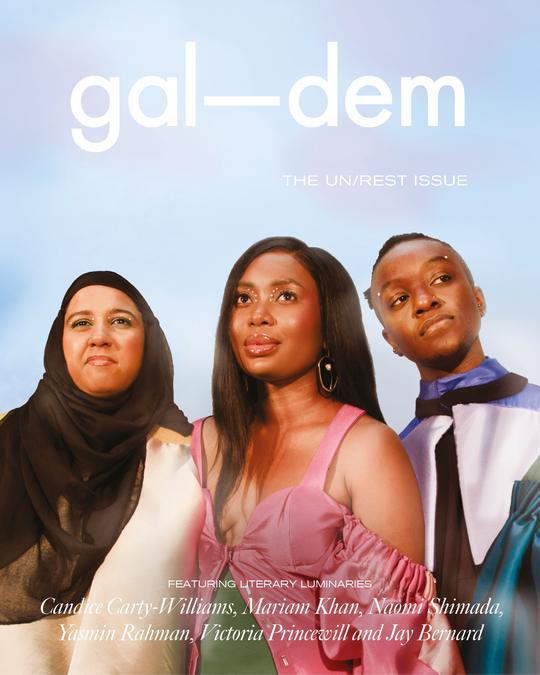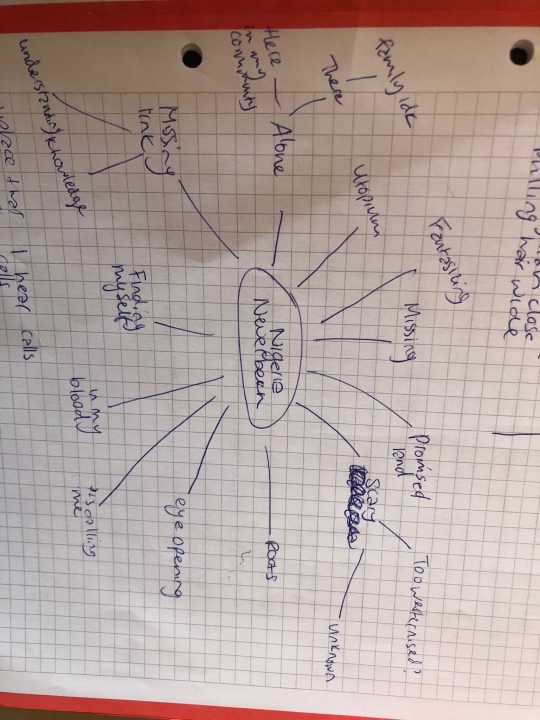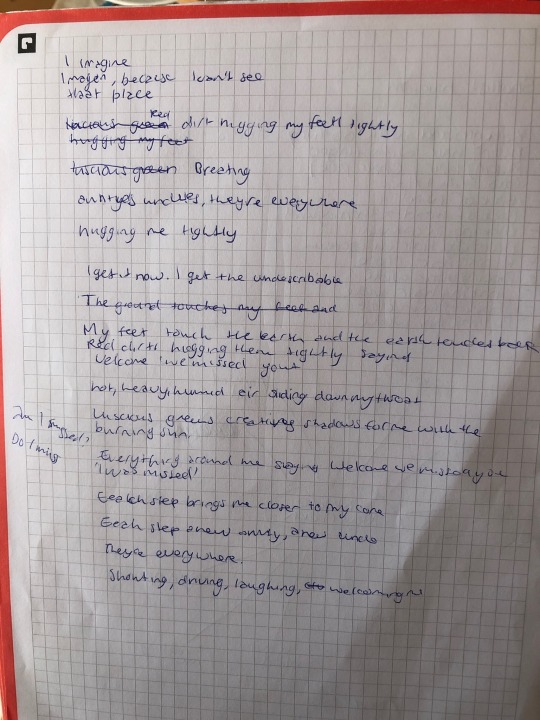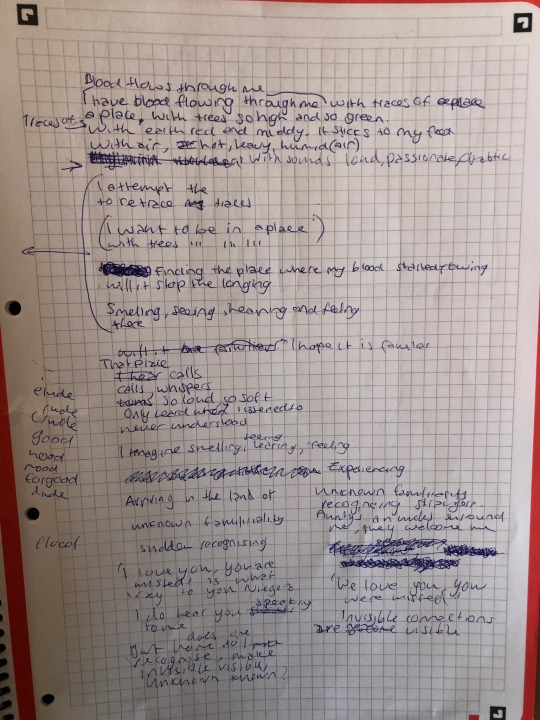Text
Self-created word for what we're doing with this magazine
Interknewing - connecting your present experience to the past/silenced/unknown/supressed experiences and creating new forms of knowledge from that
0 notes
Text
https://www.instagram.com/p/CW3kaeWvQBG/?utm_source=ig_web_copy_link
Instagram post about the importance/non importance of being able to speak your native language.
0 notes
Text
Pinterest page with material for my collage about nigeria.
0 notes
Text



Quotes from Rolando Vasquez's ideas about decolonial listening in his interview with Soapbox.
0 notes
Text
Our group's google drive with our planning, inspirations, notes etc.
0 notes
Text
An article around afros in black political movements and its relevance outside of the political realm.
0 notes
Text
An article about the history of the afro, mostly relating to it's presence in pop culture
0 notes
Text
An article about the history of the afro, it's significance now and the usage of the affro by white media
0 notes
Text
'Disidentification is about recycling and rethinking encoded meaning. The process of disidentification scrambles and reconstructs the encoded message of a cultural text in a fashion that both exposes the encoded message’s universalizing and exclusionary machinations and recircuits its workings to account for, include, and empower minority identities and identifications. Thus, disidentification is a step further than cracking open the code of the majority; it proceeds to use this code as raw material for representing a disempowered politics or positionality that has been rendered unthinkable by the dominant culture.' - José Esteban Muñoz in Disidentifications: Queers of Color and the Performance of Politics
0 notes
Text
Magazine ideas
For my part of the magazine i decided to create a visual/textual archive of the afro and write a poem about Nigeria.
Afro archive
Me and Tida were talking about our hair and we felt that afros hold so much power and we wanted to honour them in some way. Especially because the both of us went through quite a journey accepting our hair.
Poem about Nigeria
With the group we were talking about how it felt to think back to foods/sound/smells for our countries and that they are often indescribable, but when you're back you emediately notice it again. Since I want to Nigeria once, when I was 6 months old, I felt I didn't share their feelings. It made me feel how I often feel around diasporans. I don't know what it's really like. I have a lot of fantasies but I will never understand my groups experience, until I go myself. So then I decided that I'm going to write a poem about what I imagine Nigeria to be like and that feeling of missing a place i've never experienced.
0 notes
Text


Azeema magzine
AZEEMA is a print magazine, online platform, community and creative agency, exploring women and non-binary folk within West Asia, North Africa and South Asia, diasporas and BEYOND. Originally Founded by EIC and Creative Director Jameela Elfaki in 2017, AZEEMA has grown into a positive cultural force with a beautiful, talented team and incredible community. We pride ourselves in challenging and confronting issues surrounding representation, by creating a space that is inclusive and celebratory of our cultures. We are an inclusive space, with no borders.
0 notes
Text

Galdem magazine
gal-dem is an annual English magazine dedicated to women and non-binary people of color. It was founded in 2015 by a young university student tired of the prejudices within the university. The first edition, printed in 1000 copies, sold out in a very short time, from there the story of gal-dem is that of a success in being a point of reference for an audience that sought to share their story in a world of prejudices.
gal-dem is about minority, culture, politics and social prejudices. It collects interviews and stories of women and non-binary people of color who find in its pages a solid tool of awareness.
0 notes




